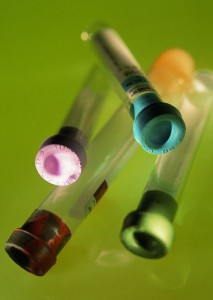Last time, we have discussed the common sense in laboratory safety, and we have mentioned a fact that there are still some other aspects in terms of such issue. Here is the sequel.
1. If you accidentally poured a considerable amount of flammable liquids, you should follow these principles:
(1) Immediately turn off all ignition sources and indoor electric heater;
(2) Close the door and open a small window;
(3) Use a towel or cloth to wipe the spilled liquids and then screw the liquids into a large container, pouring the liquids into a glass bottle with a stopper.
2. While operating the oil bath, it should be heated carefully, continuously measured with a thermometer. Remember the temperature cannot exceed the combustion temperature of the oil.
3. Easily flammable or explosive substances such as sodium metal and white phosphorus cannot be poured into dirt bucket or sink while should be collected within a specified container.
4. Liquid waste especially strong acids and bases cannot be directly poured into the sink. It should be diluted first and then poured into the sink.
5. Toxic substances should be applied only after receiving approval procedures. Additionally, you have to operate them in a strict way and properly handle them after the usage.
These tips are necessary for laboratory safety. However, how about the fire in laboratory? How to deal with it? In fact, you don’t need to be panic about the fire; you should keep calm. Firstly, you have to cut off all ignition sources and then conduct rescue correctly based on the circumstances. Generally, there are two commonly used methods.
On one hand, when flammable liquids are burning, you should immediately take away all combustible materials within the area of fire and turn off the ventilation to prevent the expansion of combustion. If the fire is in a small size, you can make use of rags, damp cloth, iron or sand to make the fire isolated from the air. It will go off gradually. Whereas, you should be cautious with the coverage, avoiding to damage glassware containers with flammable solvents, resulting another fire disaster. On the other hand, when the organic solvents like gasoline and toluene get fired, you should use stone cotton or sand to extinguish the fire. Water is absolutely not available because it will expand the burning area. Clearly, the most important is to call the police.
Laboratory safety should be treated carefully because only in this way can we conduct the experiments under a better environment, achieving more and more biological discoveries.

